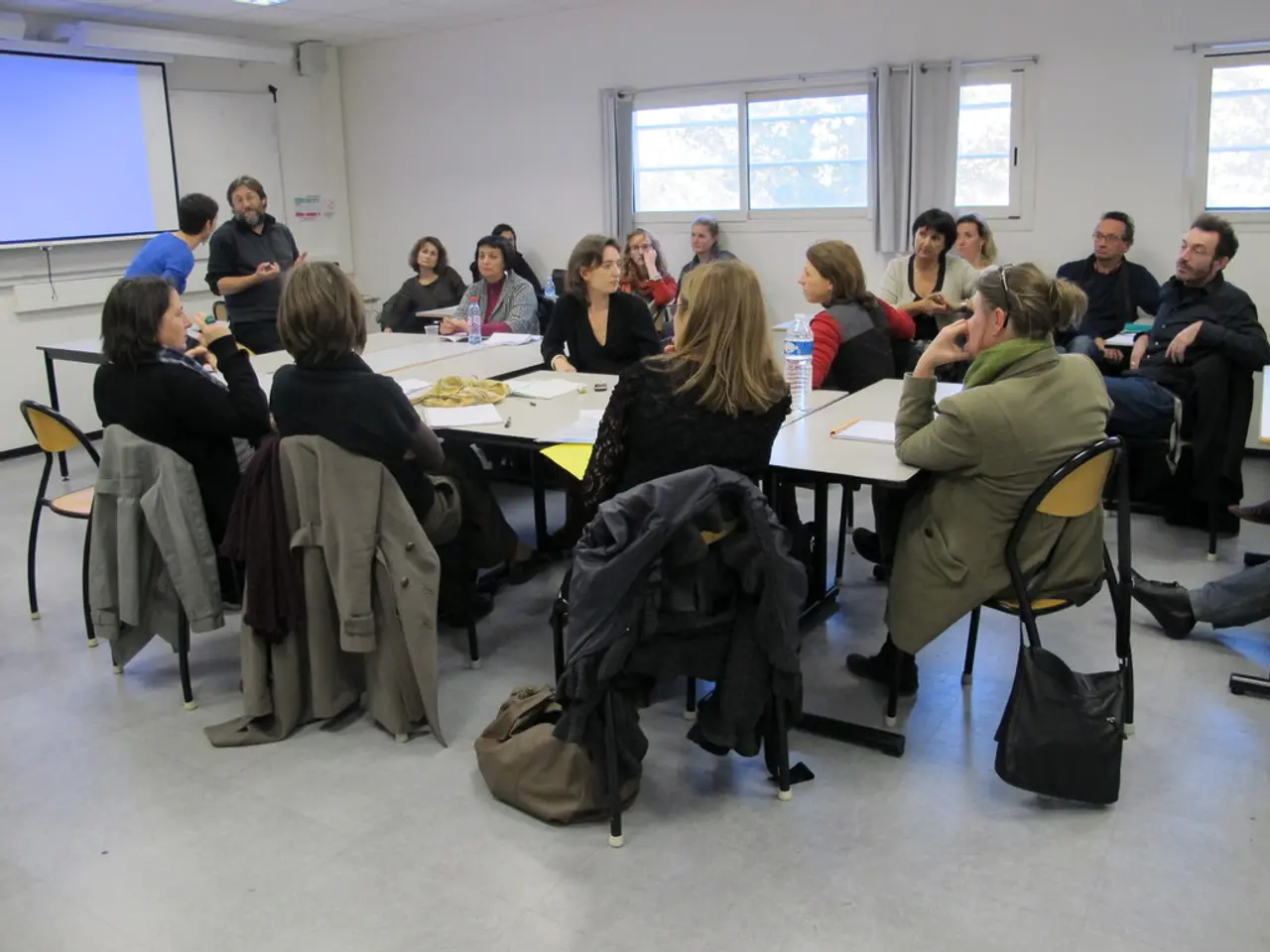"Collaborative Questions Designed for Lively Office Interactions and Bonding"
Team-building questions are an essential tool for creating a positive and productive work environment. They help employees get to know each other, establish rapport, and foster a sense of trust. Here are some examples of effective team-building questions that can be used in various settings, from formal team-building events to casual conversations.
Fun and Lighthearted
- What is your favorite team memory from the past year?
- If you could work on any project together, what would it be?
- What is one thing you appreciate about your teammates?
These questions encourage reflection on positive shared experiences and appreciation, boosting morale and cohesion.
Getting to know personal interests
- What hobbies do you enjoy outside of work?
- Are you a fan of any sports or teams?
These questions help discover common interests that build rapport beyond the work context.
Aspirations and Goals
- What are your personal or professional goals?
- Do you have long-term dreams you want to pursue here or otherwise?
This reveals motivations and opens opportunities for support and alignment toward mutual objectives.
Team Synergy and Collaboration
- How would you describe our team's collaboration?
- Can you share an example of a successful team effort?
- What role do you think trust plays at work?
- How do you handle conflicts within the team?
- What can we do to improve how we work together?
These questions focus on understanding and strengthening team dynamics and mutual support.
Meeting Check-in Style Questions
- How would you sum up your mood today in one word?
- What’s a small victory you’ve had recently?
- Is there anything that’s blocking your work that we can help with?
- If you could wave a magic wand, what work problem would you fix?
Such questions create space for openness and empathy, which enhances connection and trust.
Effective team-building questions should encourage sharing both personal and professional insights, reflect on positive shared experiences and individual contributions, explore common interests and goals, invite discussion on teamwork, trust, and collaboration challenges, and promote empathy and mutual support in day-to-day interactions.
By using these approaches, teams can build rapport, deepen understanding, and foster a cohesive, motivated team environment. For additional resources, consider articles on two truths and a lie games, problem-solving activities, and team-building activities for teens. A short 20-minute course is also available to help ask better questions and have great conversations with anyone.
- In the context of vacation, if you were to travel with your team, where would you like to go and why? (fashion-and-beauty, food-and-drink, home-and-garden, travel)
- When it comes to fashion trends, what style would you like to experiment with as a team and how would that reflect our office culture? (fashion-and-beauty)
- If we were to organize a pet-friendly day at work, what pet would you bring and why? (pets)
- In a situation where we need to collaborate on a lifestyle magazine, what section would you prefer to manage or contribute to and why? (lifestyle)
- Assuming we have a budget for team bonding, would you prefer a shopping trip to a car dealership or an outdoor adventure retreat? (cars, shopping)




